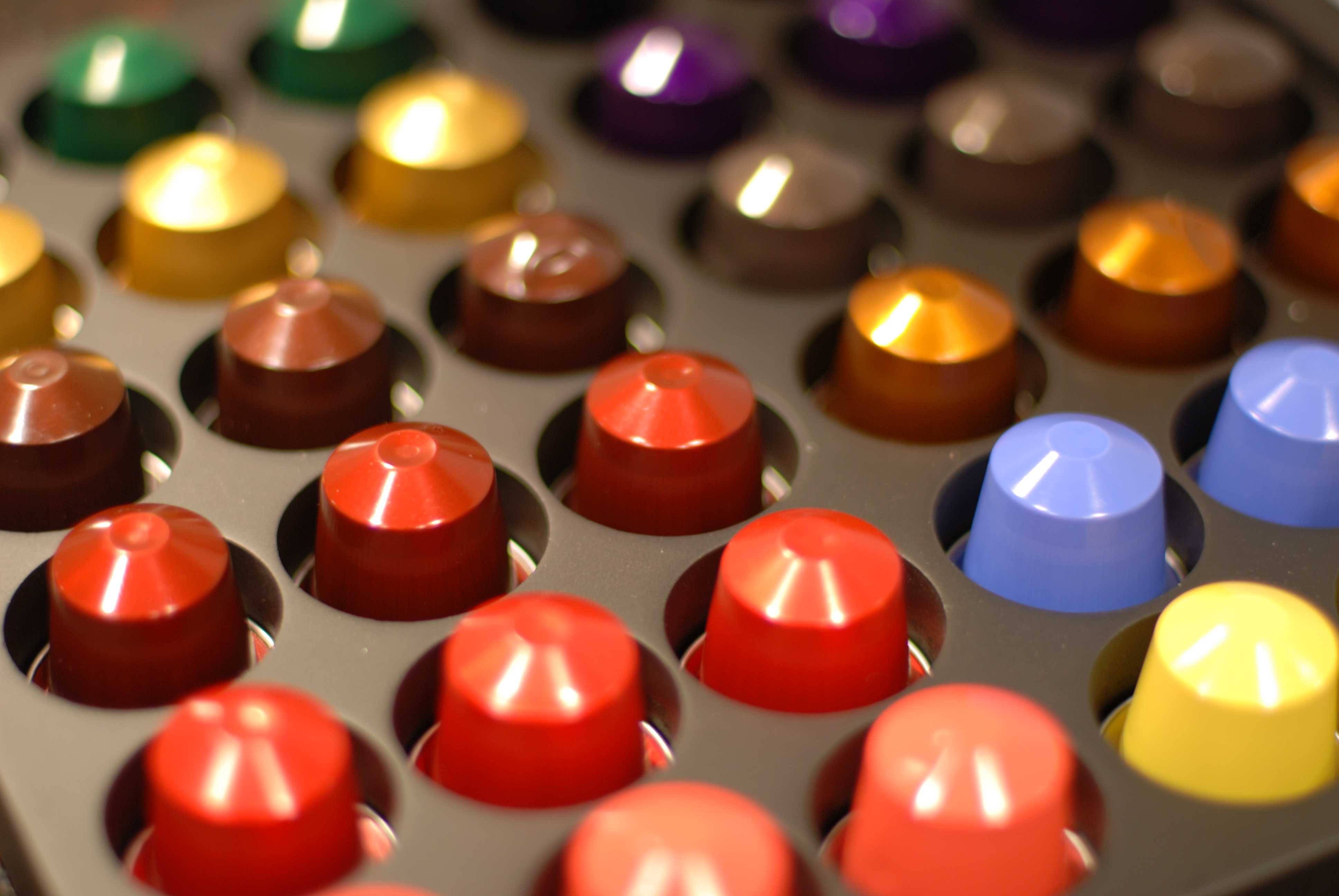A recent poll has found that a majority of Germans would welcome a deposit scheme to boost recycling of coffee capsules to lessen their environmental impact. But could this really happen?
Coffee capsules – a scourge for environmental campaigners due to the relatively large amount of waste they generate – should be part of a deposit system to encourage people to recycle them, most Germans think.
Fifty-three percent of those questioned by polling institute YouGov would welcome a deposit system for coffee capsules, similar to the German deposit system already in place. In this system, an additional charge or Pfand is added to the price of most bottled beverages. This charge is then refunded when the bottles are returned.
While the appeal of the fast, efficient coffee capsule among German households is clear, consumers in Germany and beyond point out that their popularity comes with an environmental burden.
According to German consumer safety group Stiftung Warentest, some 13,000 tons of aluminum, plastic and organic coffee capsule waste likely ended up in the trash in 2013.
The Tweet above shows a majority of Germans in favor of a deposit on coffee capsules, to-go cups and glass bottles – but not on Tetra Paks for drinks.
Difficult to recycle
Although coffee capsules are theoretically recyclable, this is not so straightforward, and even varies by brand.
Nespresso’s all-aluminum pods could be easily recycled – once the coffee residue has been removed first. The mixed-plastic pods from rival company Keurig Green Mountain are reportedly very difficult to recycle, although the company says it will come up with a recyclable pod of its own by 2020.
Keurig Green Mountain has said that all post-2006 varieties of its capsules are fully recyclable, but campaigners point out that even the newer capsules are only recyclable if customers separate them into their paper, plastic and metal components.
The environmental impact of coffee capsules has even been criticized by one of its inventors.
John Sylvan, a co-founder of Keurig Green Mountain, admitted last year that he “feels bad” about the environmental impacts of his creation.
Hamburg, the second-largest city in Germany, tackled the topic earlier this year by banning coffee pods and other disposable products from its city buildings as part of a drive to reduce environmental waste.
Almost 3 billion coffee capsules were used in Germany in 2014
Consumption of coffee capsules is on the rise in Germany
How realistic is a coffee capsule deposit system?
The Greens in Germany recently said Germany is on the wrong track with coffee capsules, translating into enormous resource and energy waste. It is confident that a deposit system or an environmental tax could work.
Peter Meiwald, a parliamentarian for The Greens, told DW he was pleased that the majority of citizens back a deposit system for coffee capsules. “So now manufacturers and legislators are being called upon to do it,” Meiwald said.
Increased prices tell “the ecological truth” in terms of the actual costs of coffee capsules – so a deposit system is at least a start, Meiwald said.
“Manufacturers are not complying with their product responsibilities and the packaging directive is failing to achieve clarity,” Meiwald said. “Fortunately, also citizens are demanding that this finally changes.”
This survey indicates that awareness of the environmental problem created by coffee capsules is definitely present, he concluded.
Deposit system ‘not the solution’
But the deposit system favored by most Germans and by The Greens is not the answer to the coffee capsule problem, say critics who include not just coffee manufacturers, but also environmental campaigners.
Nestle, which owns the Nespresso brand, has voluntarily committed itself to taking part in the so-called German “dual system” of recycling, whereby its capsules with coffee residue should theoretically go yellow bins for recycling.
Nestle spokesperson Achim Drewes rejected a potential coffee capsule deposit system. “Just to avoid the logistical expenses, the additional transport, it would make more sense to use the existing system,” rather than creating a separate system, Drewes told German broadcaster MDR.
Philip Sommer of German environmental group Deutsche Umwelthilfe also sees problems with the deposit approach.
“If you have the capsule and would like to dispose of it in the best possible way, then the contents – the coffee – should be put in the biodegradables container so that it can be composted,” he told MDR.
The empty capsules would then have to go into the yellow container – amounting to a process that, for most consumers, is simply too complicated and time-consuming.
As opposed to a deposit system, Sommer promotes a levy on coffee capsules. “That would really reduce the consumption of capsules.” Such a unilateral measure is however unlikely.
The German Environment Agency also sees no need for a coffee capsule deposit system, telling MDR that the environmental impact of capsules is too low to justify this.


















